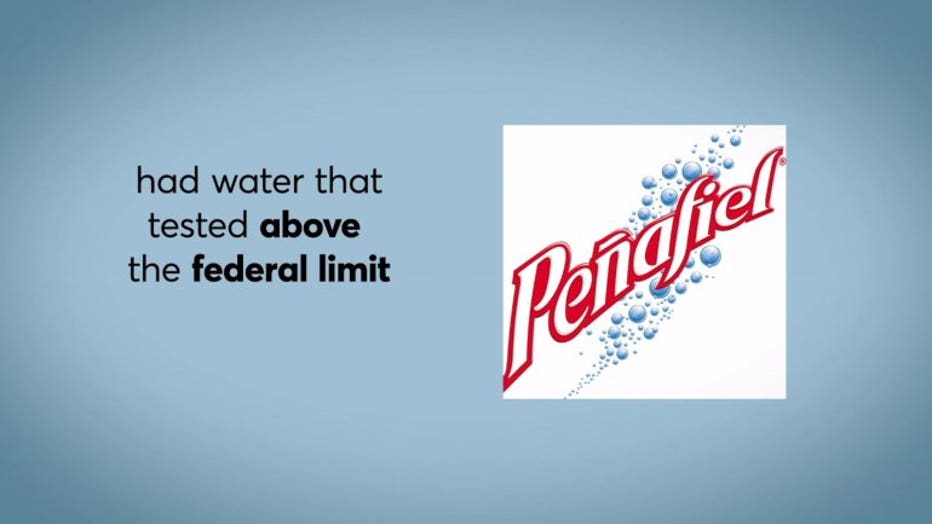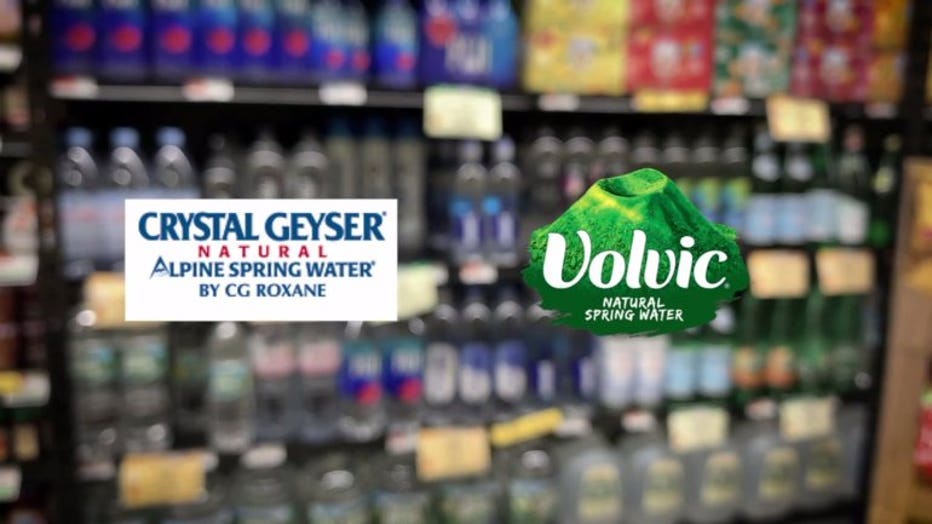Consumer Reports investigations finds bottled water with unsafe levels of arsenic
Bottled water was the number one packaged beverage in the US in 2018 but a new Consumer Reports investigation finds several brands of bottled water contain arsenic at concerning levels.
Bottled water is sold almost everywhere. But do you really know what’s in it? For example, Starkey Spring Water owned by Whole Foods. In later 201 to early 2017, more than 2,000 cases were recalled because they contained arsenic levels higher than the federal government allows.
"So, after the recalls the company’s own test results show Starkey Spring Water still has arsenic levels at 8 parts per billion, which is federally compliant but above what some states, health officials and Consumer Reports considers safe," explained Ryan Felton, a Consumer Reports Investigative Reporter.
The federal limit for arsenic in bottled water is 10 parts per billion, but Consumer Reports says that limit should be changed to no more than 3 parts per billion.

A Consumer Reports review of public records and its own independent tests found Keurig Dr Pepper-owned Penafiel had water that tested above the federal limit with arsenic levels at 17 parts per billion. Penafiel has since told Consumer Reports it stopped production at its manufacturing plant to improve arsenic filtration.
The Consumer Reports review also found several other popular brands, including Crystal Geyser Alpine Spring Water and Volvic sell bottled water that is federally compliant, but above what growing research suggests may be unsafe to drink.

"Arsenic is a heavy metal that, with chronic exposure over time, can cause serious health problems including cancer and cardiovascular disease. It really makes no sense that consumers can purchase bottled water that is less safe than tap water," said James Dickerson, Consumer Reports Chief Scientist.
Consumer Reports reached out to all of the bottled water companies mentioned in the story. Companies that responded said they adhere to government standards and that arsenic can be naturally occurring.
So how can you make sure your water is safe, with arsenic levels below 3 parts per billion? If you drink bottled water, look for the company's water quality report online, or call and ask for a copy.In total, Consumer identified 11 brands out of more than 120 that either self-reported or, based on tests it commissioned, had detectable amounts of arsenic.

All Consumer Reports material Copyright 2019 Consumer Reports, Inc. ALL RIGHTS RESERVED. Consumer Reports is a not-for-profit organization which accepts no advertising. It has no commercial relationship with any advertiser or sponsor on this site. For more information visit consumerreports.org.

